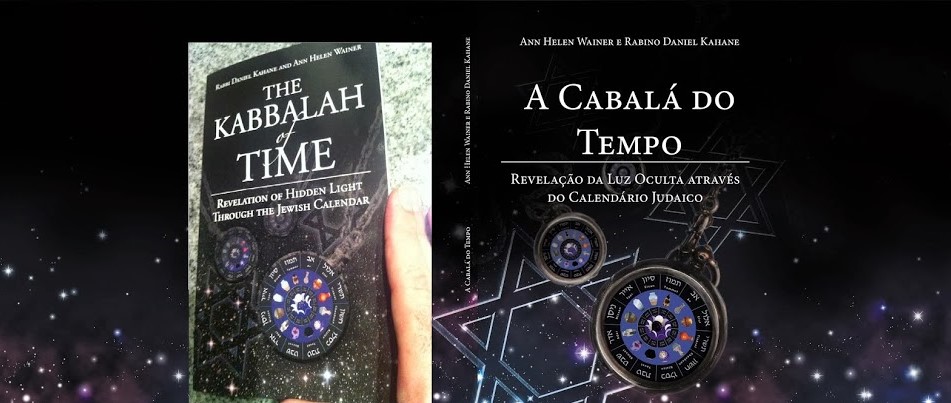BESHALACH: 35. And the children of Israel ate the
manna for forty years until they came to an inhabited land. They ate the manna
until they came to the border of the land of Canaan. 36. The omer is one tenth of an ephah.
HAFTORAH: And the land
rested forty years. 1. And the children of Israel did that which displeased the
Lord, and the Lord delivered them into the hand of Midian (for) seven
years.
Talmud
Sotah: Daf 44: Those Exempt from War
Uzziah (also known as Azariah)
Girgashites
Week 44 is the week of Tisha B’Av, the only 24-hour fast day in the Jewish calendar other than Yom Kippur. Tisha B’Av marks the the day in which both the first and second Temples were destroyed, as well many other tragedies in Jewish history. It was on Tisha B’Av that the spies sent to the Land of Israel by Moshe came back with a negative report. After the people also reacted negatively, it was decreed that the Jewish people would spend 40 years in the desert.
The section of the Torah portion of Beshalach for this week specifically
mentions how the Jewish people would eat mannah
for 40 years until they came to an inhabited land, the border of the land
of Canaan. As mentioned previously (Week 42), once we complete the 42 journeys
in the desert enter that border in the month of Av. The manna is no
longer given, and it is time to earn our sustenance through tilling the Land. This
conquest of the Land also appears related to the coming of Mashiach, related to this week.
The Haftorah verses speak of the Land resting for forty years. These forty years seem to be in direct contrast with the forty years spent in the desert. In the verse following that of the Haftorah, interestingly, just like the last battle in the 40 years in the desert were against Midian, so too, Israel now faced oppression from Midian after 40 years in which there was relative calm. Like on Tisha B’Av, Israel was delivered into the hands of its enemies because it displeased G-d. (This appears related to last week’s section of gemara Sotah, which describes Pinchas as the Mashuach Milchamah in the war against Midian).
Daf Mem Dalet (Folio 44) of Sotah speaks of the laws regarding the impurity of a dead body. It also speaks of other cases of people exempt from fighting a milchemet reshut: those that are engaged to be married, and those that are afraid. The daf also begins another chapter on the Eglah Arufah, the ritual of beheading of a calf in the case of an unsolved murder outside of a Jewish city. Many of these topics, particularly the first and the last, appear related to Tisha B’Av, a date marked by death and destruction. Also, Tisha B’Av is deeply related to those that fear war, similar to the fear that engulfed the Jewish people when they heard the report of the spies.
Uzziah, also known as Azariah, was the son of Amaziah and one of the most successful kings of Judah. His counterparts in Israel were Jeroboam ben Jehoash (31 years), Zechariah (6 months), Shallum (1 months), Menachem ben Gadi (10 years), Pekahiah ben Menahem (2 years), and Pekah ben Remaliah (8.5 years).
The beginning of his reign, while Uzziah was still young, saw a great devastation of Judah, with attackers plundering and pillaging it from every border. However, once Uzziah came of age and had a frim grasp of his throne, he was able to extensively develop the country, both militarily and economically.
Despite his piety, Uzziah made a grave mistake, which became
a defining event in his kingdom. Over repeated warnings and objections, Uzziah
attempted to play the role of a kohen and
offer incense in the Temple. Because of this, he was immediately afflicted with
tzara’at, spiritual leprosy. He
remained a metzorah for the rest of
his life, living in isolation close to a cemetery. There is a well known story
in the Talmud that teaches Mashiach, who is born on Tisha B’Av, is a Metzorah by the gates of Rome (Edom). Uzziah means “G-d is my
strength,” and Azariah means “G-d is my help.” The word for strength, Oz, is related to the word Az, bold. There is a kind of boldness of
the side of holiness which is good (such as to be “bold like a leopard,” az ka’namer), but there is also a boldness of the side of impurity (such as
in the phrase, “those that are bold go to hell/purgatory,” az panim legehinnom). Uzziah showed these both kinds of boldness,
both of which are also associated with Tisha
B’Av. Also, the Haftorah for Shabat Hazon, read during this week, begins by stating that it was prophecized by Isaiah, Uzziah's uncle, during Uzziah's reign.
The forty-fourth week is connected to
conquering the Girgashites. Their comes from the word Girgash, which means a type of red clay. This name is reminiscent of
the creation of man, who was formed from the earth. Adam comes from the word Adamah (earth), and is related to the
word Adom (red), like Edom (Eisav). The Girgashites are connected to the
negative side of Gevurah, which
expresses itself primarily in
violence and murder. This is the characteristic of Eisav himself. King David, who is also described in the Torah as
being red, represents the tikkun of
this characteristic. King David is able to use his gevurah for the good, such as in how he defeated Goliath, and in
all of his other battles for G-d and Israel.
